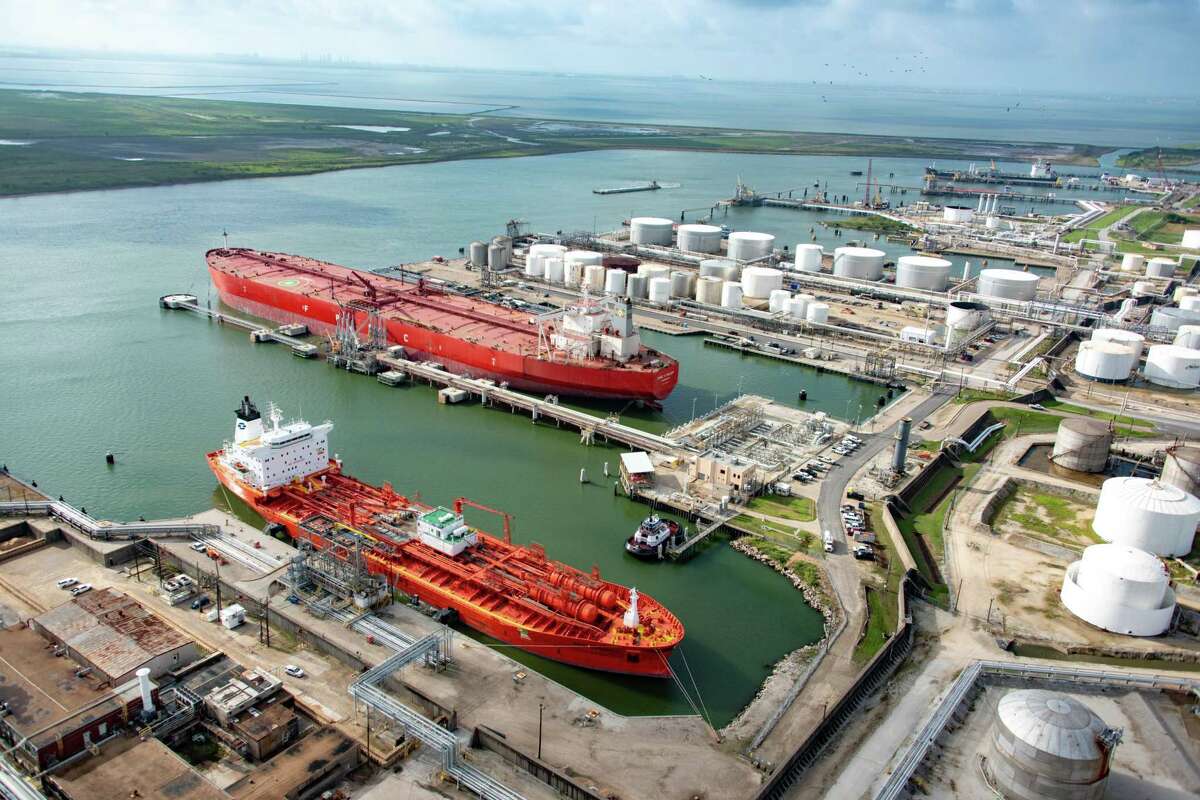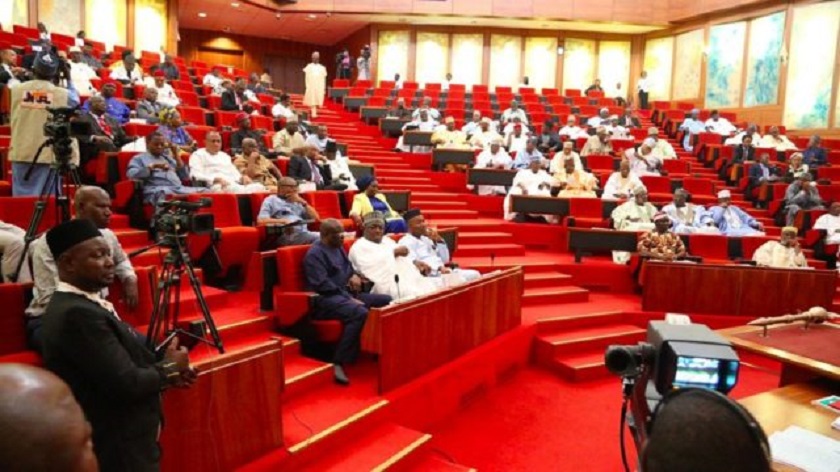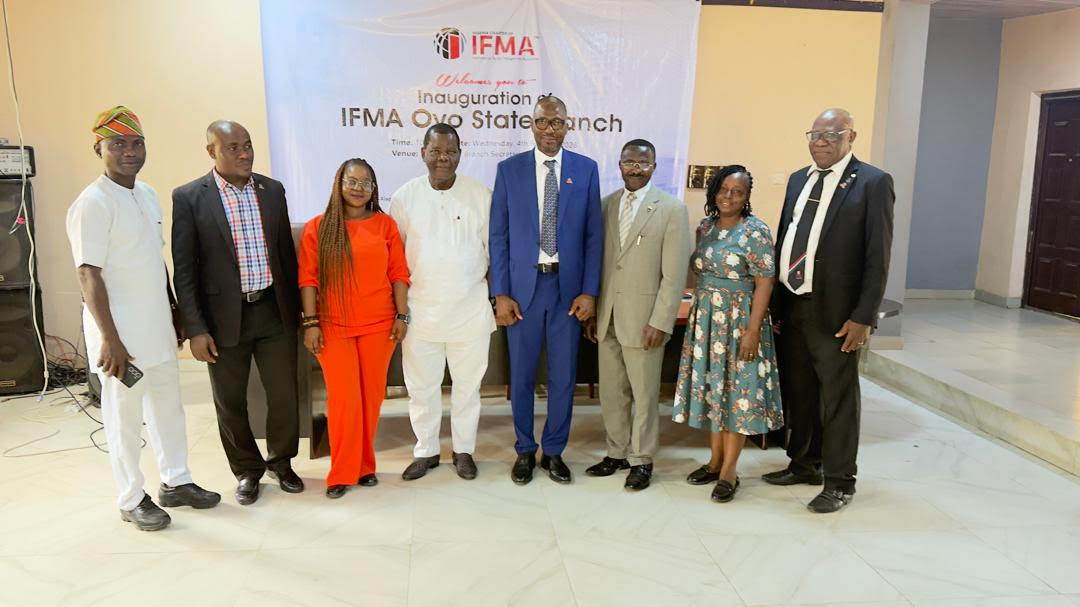General
FG Gives Conditions for Sustainable Port Development

By Adedapo Adesanya
The federal government has revealed its position to discourage unsolicited port development proposals that are not based on viable projects and future developments contained in the infrastructure development plan of the government under the National Transport Policy and programmes of agencies under the sector.
This is coming as the Nigerian Port Authority (NPA) embarks on the process of developing a port development master plan that would set out the policy on port infrastructure development to match the current and future economic expectations/national goals and objectives.
The Minister of Transportation, Mr Mu’azu Jaji, in his presentation titled How To Streamline The Qualification Process To Encourage The Construction Of New Ports By States For A Sustainable Nigerian Blue Economy at the recent Niger Delta Blue Economy Investment Forum confirmed that the government had received unsolicited proposals some of which were initiated by state governments including the Lekki Port which was prior to the Infrastructure Concession Regulatory Commission Act, 2005.
He said, “Unsolicited proposals from state governments must undergo the required due diligence and procedures for constructing new ports. There is no shortcut to the process. Federal agencies also need to reduce the red-tape bureaucracies to make the process easy and seamless, observing the tenets of the ease-of-doing-Business, in order to attract Foreign Direct Investments.”
He noted that over the years, it had been observed that the bane of port development in Nigeria had been the absence of a Port Master Plan, which explained the number of unviable ports as well as urban encroachment to the port environment.
“A good example is the Lagos Ports with the attendant congestion along the port corridors. This development comes with its concomitant negative consequences on port efficiency and at a cost. This must be guarded against in future developments,” he said.
“Port development must be preceded by rigorous studies to determine both technical and economic viability. This is the only way by which we can move on the path of a sustainable Blue Economy,” he added.
The port development masterplan by the NPA was conceived to identify the gaps in infrastructure capacity; make projections on needed growth to address the capacity deficiency; and plan future development to ensure that port development is spaced out in time and over locations to ensure in time development, technology is up to date, avoid overcapacity that could result in unviable ports as in (Delta cluster of ports in the 1970s), ensure competition, and achieve economic growth, among other policy objectives.
The Minister acknowledged the legal framework governing the operation of ports in the country as in the Exclusive Legislative List contained in Part 1 of the Second Schedule of the 1999 Constitution such that all Nigerian Ports are Federal Ports with no provision for private ownership of ports in Nigeria, however, with the enactment of the ICRC Act, 2005, a window has been opened for the participation of the private sector in port development through Public-Private Partnerships arrangement.
While no private ownership of the port is currently contemplated by the country’s laws, current port development processes involve submitting a proposal for development (solicited or unsolicited), developing an outline business case and the final business case containing technical and financial details and obtaining all necessary approvals to proceed, granting of a concession for port development and operations by the Federal Government; and executing a concession agreement containing details of the concessions – performance parameters, financial provisions, technical standards, concession period (which takes into account the recoupment period, construction period and actual port operations period, reversionary rights and other relevant provisions).
Mr Jaji believed that the emergence of the PPP processes had further streamlined the qualification process for private participants in the blue economy.
“This was an enabler that made it possible for the state governments to be major promoters in the emergence of Deep Sea Ports in Nigeria. Every port has both the waterfront and the backup land area, which is within the legislation of the federal government, while the latter is within that of the state since the Certificate of Occupancy is being given by the state government,” he stated.
The Minister also acknowledged that the Blue Economy concept had developed as a sound paradigm for the comprehensive and sustainable management of marine and coastal areas and their natural resources.
He said, “Considering that Blue Economy includes activities such as fishing which involves the use of vessels/crafts that call at waterfront terminals or jetties, there is also a framework for licensing facilities in this category. This could be through the grant of jetty licenses or the designation of existing terminals as fishing terminals.
“One such process which is ongoing is for the designation of KLT I in Lagos as a fishing terminal with the hope that others will follow across the country. It needs to be stated that fishing terminals are ports used for vessel calls, just like any other facility. The involvement of NPA in this situation is the provision of the facility while the fishing activity is regulated under a different sector.
“Coherent and optimized co-existence of all sectors of activity is needed while preserving the quality of ecosystems, goods, and services in the long term.
“The Port plays a pivotal role in the development of the Blue Economy as the interface between maritime and terrestrial space.”
While acknowledging that Ports are the epicentre of many aspects of the Blue Economy, including:, tourism and leisure, fishing, aquaculture, offshore renewable energy, marine conservation, coastal protection, shipbuilding, oil, and gas, he said any call for streamlining the qualifications process for the development of new ports in a Blue Economy would be factually inaccurate with the assumption that there was hitherto no uniform standards for the qualification of new port developers.
Rather, he said the emergence of a Blue Economy would only introduce another layer or layers of qualification for new ports and facilities.
“The aspect of the Blue Economy recently introduced only added another layer or layers of qualification that had not been in existence since issues relating to the environment and its impacts on port development is a relatively recent phenomenon,” he said.
“The requirement for Environmental and Social Impact and Assessment studies in capital projects, including port infrastructure, is a relatively new concept in these climes.
“It is simply required as a major qualification that the developers of new ports MUST show how such developments will impact all aspects of the ocean, including diversity, environmental protection, commerce, the lives of members of the host communities, and the improvement of the economic prosperity of the country through the oceans,” he noted.
General
NERC Unveils 3-Step Guide for Resolving Electricity Complaints

By Adedapo Adesanya
The Nigerian Electricity Regulatory Commission (NERC) has introduced a streamlined three-step process to help electricity consumers address common issues like power outages, estimated billing, faulty meters, and voltage fluctuations.
In a public advisory shared on its X handle on Tuesday, the electricity sector regulator emphasised that customers should begin by contacting their respective electricity Distribution Companies (DisCos), which serve as the primary point of contact for technical and billing problems.
Consumers are urged to secure a complaint reference number and maintain records of all interactions for efficient follow-up.
The advisory outlines the process as follows: “Contact your DisCo’s customer care – This is the first step for all technical or billing issues;
“Escalate to State Electricity Regulator (SER) – If unresolved, and the consumer is in a state that has transitioned to an SER;
“Reach NERC Call Centre – For consumers in non-transitioned states or needing further assistance. Contact options include 0201 344 4331, 0908 899 9244, or [email protected],” it said.
“We’re here to make sure your complaint is heard and addressed,” the advisory concluded, aiming to empower consumers amid ongoing challenges in Nigeria’s power sector.
This guidance comes as electricity consumers continue to grapple with service disruptions and billing disputes, highlighting NERC’s efforts to improve accountability across DisCos and state regulators.
General
Senate Passes Electoral Act Amendment Bill After Mild Row

By Adedapo Adesanya
The Senate passed the Electoral Act, 2022 (Repeal and Re-Enactment) Bill 2026 on Tuesday after overcoming a rowdy session that saw lawmakers at loggerheads.
The issue in the upper chamber stemmed from a division over Clause 60 raised by Mr Enyinnaya Abaribe, a member of the opposition party, African Democratic Congress (ADC), from Abia South.
The Senate President, Mr Godswill Akpabio, stated that he believed the demand had previously been withdrawn, but several opposition senators immediately objected to that claim.
Citing Order 52(6), the Deputy Senate President, Mr Barau Jibrin, argued that it would be out of order to revisit any provision on which the Senate President had already ruled.
This submission sparked another uproar in the chamber, during which Mr Sunday Karimi had a brief face-off with Mr Abaribe.
The Senate Leader, Mr Opeyemi Bamidele, then reminded lawmakers that he had sponsored the motion for rescission, underscoring that decisions previously taken by the Senate are no longer valid, maintaining that, consistent with his motion, Mr Abaribe’s demand was in line.
Mr Akpabio further suggested that the call for division was merely an attempt by Mr Abaribe to publicly demonstrate his stance to Nigerians. He sustained the point of order, after which the Abian lawmaker rose in protest and was urged to formally move his motion.
Rising under Order 72(1), Mr Abaribe called for a division on Clause 60(3), specifically concerning the provision that if electronic transmission of results fails, Form EC8A should not serve as the sole basis, calling for the removal of the proviso that allows for manual transmission of results in the event of network failure.
During the division, Mr Akpabio directed senators who supported the caveat to stand. He then asked those opposed to the caveat to rise, to which 15 opposition senators stood.
However, when the votes were counted, the Senate President announced that 15 senators did not support the proviso, while 55 senators voted in support.
Earlier, proceedings in the Senate were momentarily stalled as lawmakers began clause-by-clause consideration of the Electoral Act, 2022 (Repeal and Re-Enactment) Bill 2026, following a motion to rescind the earlier amendment.
The motion to rescind the bill was formally seconded on Tuesday, paving the way for the upper chamber to dissolve into the committee of the whole for detailed reconsideration and reenactment of the proposed legislation.
During the session, the Senate President, Godswill Akpabio, reeled out the clauses one after the other for deliberation.
However, the process stalled when at clause 60, Mr Abaribe raised a point of order, drawing immediate attention on the floor.
This soon caused the session to move into a closed-door session.
Before rescinding the Electoral Act, the red chamber raised concerns over the timing of the 2027 general elections and technical inconsistencies in the legislation.
Rising under Order 52(6) of the Senate Standing Orders, the Senate leader, Opeyemi Bamidele, moved the motion to reverse the earlier passage of the bill and return it to the Committee of the Whole for fresh deliberations.
He explained that the development follows the announcement by the Independent National Electoral Commission (INEC) of a timetable fixing the 2027 general elections for February 2027, after consultations with the leadership of the National Assembly.
He stated that stakeholders had raised concerns that the proposed date conflicts with the provisions of the amended law, particularly the requirement that elections be scheduled not later than 360 days before the expiration of tenure.
He further noted that upon critical review of the passed bill, the 360-day notice requirement prescribed in Clause 28 could result in the scheduling of the 2027 Presidential and National Assembly elections during the Ramadan period.
According to him, holding elections during Ramadan could negatively affect voter turnout, logistical coordination, stakeholder participation, and the overall inclusiveness and credibility of the electoral process.
The motion also highlighted discrepancies discovered in the Long Title and several clauses of the bill, including Clauses 6, 9, 10, 22, 23, 28, 29, 32, 42, 47, 51, 60, 62, 64, 65, 73, 77, 86, 87, 89, 93, and 143. The identified issues reportedly affected cross-referencing, serial numbering, and internal consistency within the legislation.
General
IFMA Nigeria Gets Branch in Oyo, Picks Adejumo Olusola Babatunde as Coordinator

By Modupe Gbadeyanka
A new branch of the International Facility Management Association (IFMA) Nigeria Chapter has been established in Oyo State, with Mr Adejumo Olusola Babatunde chosen as Coordinator.
The organisation set up an arm in the South-West state in a bid to expand its footprint in the country. Mr Babatunde will be assisted by other executive committee members, including Mr Ajiboye Olusola Akeem as Secretary, and Mrs Adeniran Olaide as Treasurer.
At the inauguration of the branch at the Nigerian Society of Engineers (NSE) Secretariat in the Akobo area of Ibadan, the Oyo State capital, the president of IFMA Nigeria, Mr Sheriff Daramola, expressed delight at the successful inauguration of the branch and commended members for their commitment to the growth of facility management in Nigeria.
He highlighted IFMA’s global heritage, noting that the association is supporting over 25,000 members in more than 140 countries worldwide. Mr Daramola emphasised IFMA’s strong global network, the world’s largest and most widely recognised association for facility management professionals, headquartered in the United States and its growing influence in Africa, the Middle East and Europe.
“IFMA members have taken positions of authority across federal, state, and private institutions; IFMA Nigeria is positioned to ensure our professionals are the first choice for global investors entering the Nigerian market,” he stated.
The Legal Adviser of IFMA, Nigeria, Mr Sola Fatoki, who shared this sentiment, said, “Since 1997, when IFMA Nigeria was established, the association has equipped facility management professionals with integrated knowledge spanning human behaviour, infrastructure, and the built environment.”
He encouraged engineers, architects, surveyors, ITC, Technology innovators, data analysts and allied professionals to see IFMA as their professional home and outlined the functions and responsibilities of branch executive committees.
In his remarks, Mr Babatunde expressed gratitude to the national council for the opportunity to serve and pledged to ensure the success of the branch, focusing on unity and the professional advancement of stakeholders in the region.
-

 Feature/OPED6 years ago
Feature/OPED6 years agoDavos was Different this year
-
Travel/Tourism10 years ago
Lagos Seals Western Lodge Hotel In Ikorodu
-

 Showbiz3 years ago
Showbiz3 years agoEstranged Lover Releases Videos of Empress Njamah Bathing
-

 Banking8 years ago
Banking8 years agoSort Codes of GTBank Branches in Nigeria
-

 Economy3 years ago
Economy3 years agoSubsidy Removal: CNG at N130 Per Litre Cheaper Than Petrol—IPMAN
-

 Banking3 years ago
Banking3 years agoSort Codes of UBA Branches in Nigeria
-

 Banking3 years ago
Banking3 years agoFirst Bank Announces Planned Downtime
-

 Sports3 years ago
Sports3 years agoHighest Paid Nigerian Footballer – How Much Do Nigerian Footballers Earn












